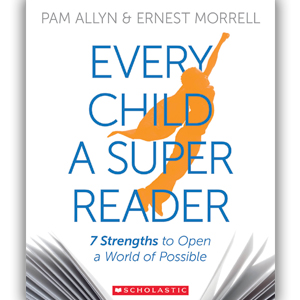
Being More with Less: A Review of Clutterfree with Kids
Every December, I insist my children share some of their old toys to make room for new ones. While the task works well when the holidays are approaching, the philosophy never took hold the rest of the year. So I decided to read Clutterfree with Kids by Joshua Becker, who advocates “change your thinking, discover new habits, and free your home.”
I’ve always admired minimalism. Becker defines it as “a lifestyle where people intentionally seek to live with only the things they really need.” The idea being that if one strips away all that isn’t important to them what they are left with will represent what they value most. This philosophy appeals to me more as my children age and become consumers themselves. Becker explains, “Living with less provides more time to spend on meaningful activities and more freedom to travel and move about.” And I couldn’t help but feel like I wasn’t modeling this behavior well enough for them to follow my lead.
In Clutterfree with Kids, Becker tackles common myths about minimalism: “owning less will be boring, owning less means I can’t own nice things, and owning less means I must sacrifice sentimentality.” With each explanation, Becker establishes how “when a commitment is made to buy fewer things, our lives are opened to the opportunity of owning nicer things as well.”
Becker argues the example parents set for their children when they choose a minimalist lifestyle: “They don’t need to buy things to be happy, they can live within their means, and we are in control of our stuff (not the other way around).” While parents often get bogged down in specific questions when they are introduced to these ideas, Becker insists it’s easy to get started. By focusing on small steps, Becker believes, “You’ll quickly begin to experience the benefits of living with less.”
Becker’s Simple Guide to a Clutterfree Home:
- Believe it is possible.
- Remove the excess.
- Implement habits to manage your clutter.
- Slow the accumulation of possessions.
A classic mistake parents make is tackling their kids’ stuff first. Becker believes parents need to begin by organizing their own stuff. So much of what clutters one’s home are items that are no longer in use so if you begin there and choose purchases carefully moving forward you can do a lot in terms of changing your surroundings.
Becker also offers plenty of practical strategies once children are ready to tackle their toys. For example, Becker suggests parents “set a confined, physical space for toys.” Once that shelf or closet is full, children will need to make decisions before they can add new toys at birthdays and holidays.
I’m particularly intrigued by Becker’s success with Project 333 – a program designed to help people rethink their wardrobes. With two daughters, managing hand-me-downs has become an issue. My younger daughter often piles her favorite clean clothes in front of her dresser and selects outfits from there, leaving everything in the dresser (and the closet) untouched. In keeping with Becker’s parents must model the behavior first, I’m going to accept the challenge the 3-month experiment presents: “Wear only 33 articles of clothing for 3 months. All clothing accessories, jewelry, outerwear and shoes count towards your number – exceptions include wedding ring, underwear, sleep wear, in-home lounge wear, and workout clothing.” While it sounds a bit extreme, my closet could use a clean out. I’ve still got clothes I wore in college twenty plus years ago. According to Becker, “Limiting your wardrobe does not rob you of personal style – it causes you to find it.” Perhaps, if I discover new habits, my kids will too.
Becker recognizes choosing to live with less is difficult in our material society, but he believes if we stop comparing our lives and simply start living them joy will find us. So whether you’re tired of the clutter in your closet, your family room, or your car, check out Clutterfree with Kids by Joshua Becker for a fresh approach to overcoming clutter.
Follow @ParentbytheBook on Twitter for updates on blog posts or like Parenting by the Book on Facebook.






